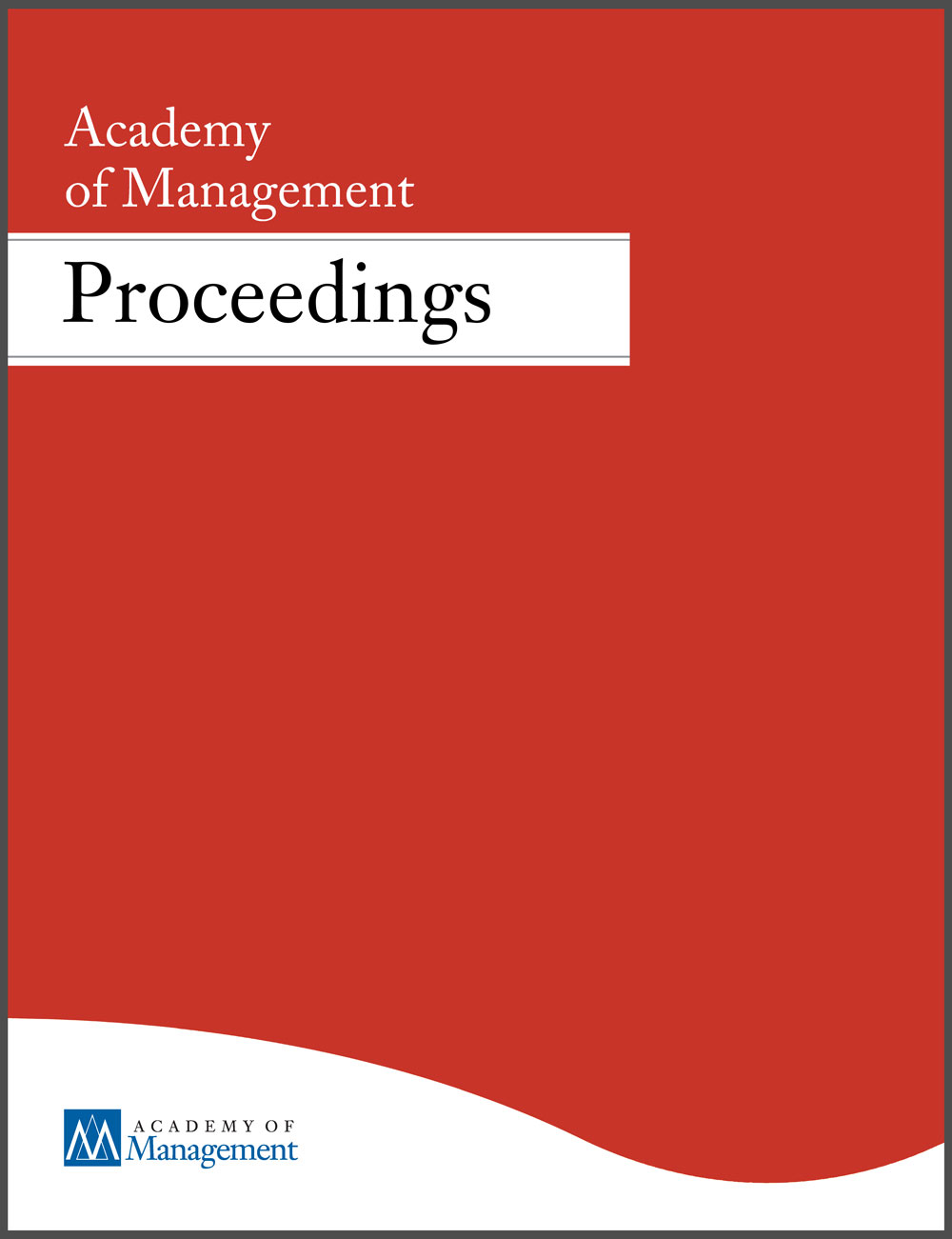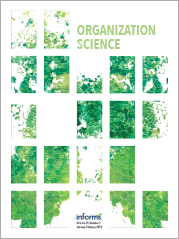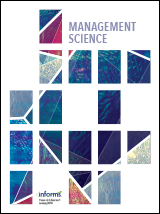Academic articles
Practitioner articles
Working papers
Books
Book chapters
Case studies
Other publications
Subject(s)
Technology, R&D management
Keyword(s)
augmentation, automation, task routinization, human capital, crowd science
In this symposium, we will examine a wide array of questions and hypotheses that focus on the people who conduct science -- as a complement to more established research traditions that focus on the publications and patents that people produce. Talks will cover topics that relate to a variety of career stages and background characteristics such as: What are the characteristics of scientists who are also inventors? How is Artificial Intelligence being integrated into crowd science projects? How does media coverage about research variably impact the authors of the research? Talks will also feature innovative data resources including one presentation that is able to examine the ways in which External Letters variably influence academic careers with respect to tenure and promotion decisions (particularly in relation to faculty who seek and gain one or more patents).
With permission of the Academy of Management
Volume
2024
ISSN (Online)
2151-6561
ISSN (Print)
0065-0668
Subject(s)
Strategy and general management; Technology, R&D management
Peer evaluations place organizational members in a dual role: they evaluate their peers and are being evaluated by their peers. We theorize that when evaluating their peers, they anticipate how their evaluations will be perceived and adjust their evaluations strategically to be evaluated more positively themselves when their peers assess them. Building on this overarching claim of role duality resulting in strategic peer evaluations, we focus on a dilemma that evaluating members face: they want to leverage their evaluations of peers to portray themselves as engaged and having high standards, but at the same time, they must be careful not to offend anyone as doing so may cause retaliation. We suggest that organizational members about to be evaluated resolve this dilemma by participating in more peer evaluations but carefully targeting in which evaluations they participate. We test our theory by analyzing peer evaluations on Wikipedia, supplemented by in-depth semi-structured interviews. Our study informs research on peer evaluation and organizational design by revealing how being an evaluator and evaluated can make evaluations more strategic.
© 2023, INFORMS
Volume
35
Journal Pages
1363-1387
Keyword(s)
open science, team science, scientific transparency, metascience, crowdsourcing analysis
Volume
11
Keyword(s)
open science, team science, scientific transparency, metascience, crowdsourcing analysis
Volume
11
Subject(s)
Entrepreneurship; Human resources management/organizational behavior; Technology, R&D management
Keyword(s)
startup early employees, technology entrepreneurship, human capital, job choice, scientists and engineers
Early-stage technology startups rely critically on talented scientists and engineers to commercialize new technologies. And yet, they compete with large technology firms to hire the best workers. Theories of ability sorting predict that high ability workers will choose jobs in established firms that offer greater complementary assets and higher pay, leaving low ability workers to take lower-paying and riskier jobs in startups. We propose an alternative view in which heterogeneity in both worker ability and preferences enable startups to hire talented workers who have a taste for a startup environment, even at lower pay. Using a longitudinal survey that follows 2,394 science and engineering PhDs from graduate school into industrial employment, we overcome common empirical challenges by observing ability and stated preferences prior to first-time employment. We find that both ability and career preferences strongly predict startup employment, with high ability workers who prefer startup employment being the most likely to work in a startup. We show that this is due in part to the dual selection effects of worker preferences resulting in a large pool of startup job applicants, and startups “cherry picking” the most talented workers to make job offers to. Additional analyses confirm that startup employees earn approximately 17% lower pay. This gap is greatest for high ability workers and persists over workers’ early careers, suggesting that they accept a negative compensating differential in exchange for the non-pecuniary benefits of startup employment. This is further supported by data on job attributes and stated reasons for job choice.
© 2022, INFORMS
Volume
70
Journal Pages
3381–4165
ISSN (Online)
1526-5501
ISSN (Print)
0025–1909
Subject(s)
Economics, politics and business environment; Ethics and social responsibility; Human resources management/organizational behavior; Management sciences, decision sciences and quantitative methods
Keyword(s)
misinformation, fake news, morality, fuzzy-trace theory, gist, verbatim, partisan politics
Volume
57
Subject(s)
Information technology and systems; Management sciences, decision sciences and quantitative methods; Marketing; Technology, R&D management
Keyword(s)
information design, bayesian persuasion, costly information acquisition, pilot tests,
product reviews
product reviews
We consider the information design problem of a demand-maximizing firm launching a product of unknown quality to a market consisting of customers who have heterogeneous prior beliefs about quality. The firm publicly discloses information about quality to all customers. These customers can subsequently opt to acquire additional information about the product at a cost from sources beyond the firm's control. Our study is motivated by the common practice of firms conducting public pilot tests or soliciting reviews from opinion leaders before launching a new product to inform potential customers about its quality. To analyze this problem, we construct a game-theoretic model of Bayesian persuasion between the firm and its customers. We characterize the firm's optimal information policy and show that it can range from fully disclosing quality to exaggerating or downplaying quality to not disclosing quality at all depending on market characteristics. We delineate the impact of market heterogeneity and access to additional information on the optimal information disclosure policy of the firm. Our analysis provides managerial guidance for firms in designing information provision strategies and operationalizing them for different market characteristics.
© 2024 John Wiley & Sons, Ltd.
Volume
33
Journal Pages
1142 – 1154
Subject(s)
Health and environment; Human resources management/organizational behavior
Keyword(s)
physician leadership, planetary health
Subject(s)
Human resources management/organizational behavior
Keyword(s)
hybrid work, new work, middle managers
ISSN (Print)
0015-6914
Subject(s)
Diversity and inclusion; Ethics and social responsibility
Keyword(s)
Course design and delivery, Women in higher education, Feature article, Europe
JEL Code(s)
124



